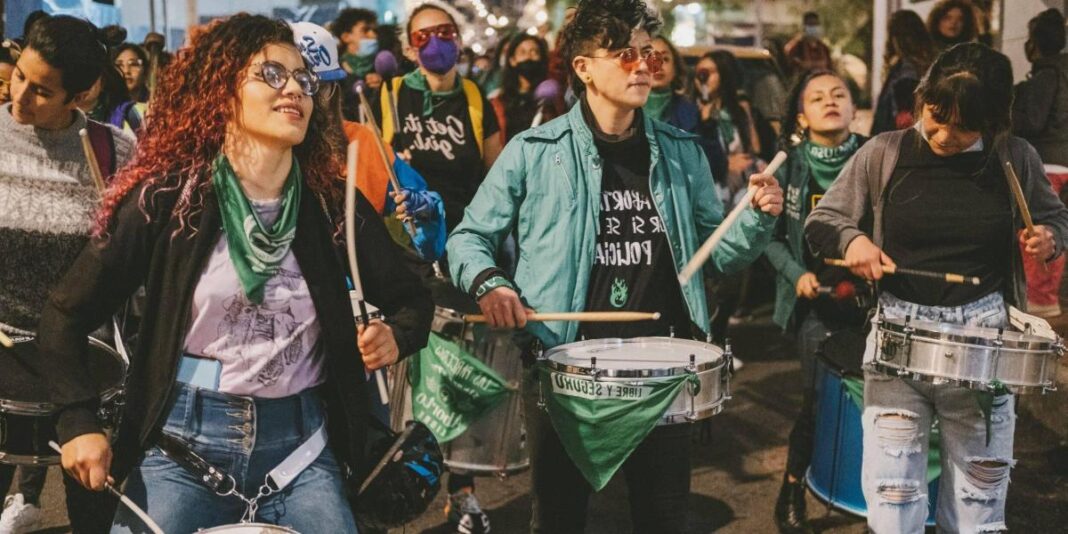New York, NY – Almost three years after Colombia’s Constitutional Court decriminalized abortion up to 24 weeks, the fight for real access continues. While the ruling was a historic win for reproductive rights, activists argue that the work is far from done. Movimiento Causa Justa, a coalition of feminist organizations, has called on the government to ensure that legal rights translate into practical, safe access for women across the country.
But let’s break this down because what’s happening in Colombia mirrors a larger issue many countries face: laws on paper don’t always reflect what happens in reality. And in this case, the stakes couldn’t be higher—women’s health, freedom, and safety are on the line.
A Legal Win, but Barriers Remain
When Colombia’s highest court ruled in favor of abortion rights in February 2022, many hailed it as a landmark decision, one of the most progressive in Latin America. The court allowed abortions up to 24 weeks and maintained exceptions for cases involving rape, risk to the mother’s health, and fetal malformations beyond that point. It was a monumental victory for feminist organizations and reproductive rights advocates who had spent years fighting for change.
But as Catalina Martínez Coral, Vice President for Latin America and the Caribbean at the Center for Reproductive Rights, emphasized during a Global Day of Action for Safe and Legal Abortion event: “We need to go beyond just having laws on the books. The state must actively guarantee that women across all regions can access safe abortions without unnecessary hurdles.”
What Are the Remaining Barriers?
Here’s the key issue—while abortion is legal up to 24 weeks, women still face significant challenges accessing these services. These challenges range from a lack of healthcare infrastructure in rural areas to social stigma and medical professionals’ refusal to perform abortions due to personal beliefs.
For context, in Colombia, much like in many other countries that have passed progressive reproductive laws, cultural norms, religious views, and logistical limitations often collide with what the law permits. A law alone cannot guarantee access when barriers such as misinformation, bureaucratic delays, or lack of adequate training for healthcare providers remain in place. In fact, many women still don’t know what their legal rights are under the 2022 ruling.
And if you’re thinking, “Isn’t this a common problem in similar rulings worldwide?”—you’re absolutely right. A gap between policy and practice can make rights feel like hollow promises.
The Push for Real Implementation
So, what’s being done to close this gap? Feminist groups like Movimiento Causa Justa are at the forefront of efforts to ensure the effective implementation of the court’s ruling. Their latest campaigns are pushing for:
- Awareness programs to inform women of their rights.
- Training for healthcare professionals to perform abortions safely and without prejudice.
- Regulatory oversight to ensure hospitals and clinics comply with the law.
It’s not just about making services available in urban centers either. Colombia’s rural areas, where access to healthcare is already limited, are particularly challenging. The state must invest in healthcare infrastructure to ensure that women in these regions have access to the same services as those in Bogotá or Medellín.
In practical terms, this means women should be able to seek an abortion without traveling long distances or facing judgemental attitudes from medical staff. And as Catalina Martínez pointed out, the government needs to actively track how the law is being enforced to ensure that access is equitable across the country.
Why Social Change is Key to Success
Legal victories are one thing, but without broader social change, the impact of those rulings can be muted. Social stigma remains a significant hurdle for women seeking abortions, especially in more conservative areas of the country. Many women still face judgment or even harassment from their communities for choosing to terminate a pregnancy, despite it being their legal right.
That’s why organizations like Causa Justa are working not just to change laws, but to foster a deeper social acceptance of abortion. The decriminalization of abortion is only one step—what’s needed next is a transformation in how society views a woman’s right to make choices about her body.
The broader takeaway here is simple: laws need culture to follow. In countries like Colombia, where tradition and religion hold strong influence, changing hearts and minds can be just as important as changing laws.
How Does This Compare to Global Trends?
Colombia isn’t alone in this struggle. Around the world, countries that have legalized or decriminalized abortion still grapple with barriers to access. Take Ireland, for example, where abortion was decriminalized in 2018, yet rural women still face travel and financial barriers. Or consider Argentina, where, despite legal reform in 2020, bureaucratic and logistical barriers still prevent many women from accessing safe abortions.
What these cases tell us is that abortion access doesn’t end with legal victories. Real, tangible changes in healthcare systems, government oversight, and public attitudes are what make these victories meaningful.
What Needs to Happen Next?
For Colombia, the challenge is clear: legal rights must translate into real-world access. This requires:
- Strong government oversight: The state needs to ensure compliance across all healthcare facilities.
- Improved healthcare infrastructure, especially in rural areas.
- Educational campaigns to inform women of their rights and healthcare providers of their responsibilities.
- Continued social advocacy to break down cultural stigmas surrounding abortion.
Final Thoughts
For many women in Colombia, the right to a safe and legal abortion is still more of a hope than a reality. While the 2022 ruling was historic, the push for real, accessible healthcare for all women continues.
As we move into 2024, it’s crucial that legal victories like this one are followed by practical steps to ensure that access is available to all—not just those in urban centers, or those who can afford it. And for those following similar struggles around the world, Colombia offers both inspiration and a cautionary tale: laws are important, but real change takes time, resources, and persistent effort.


